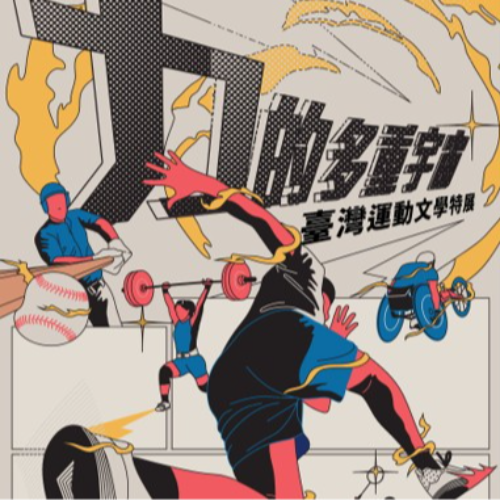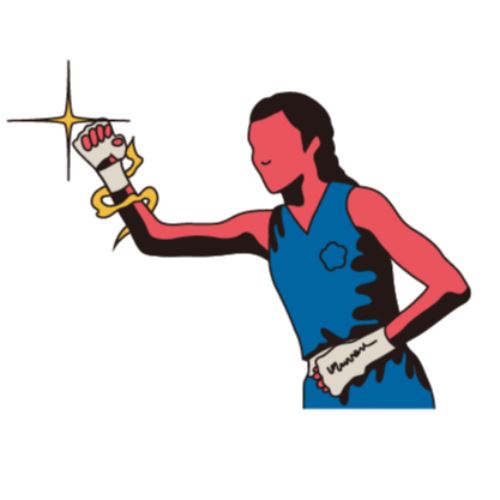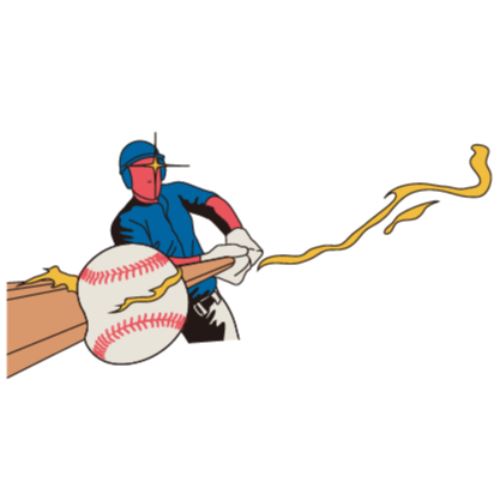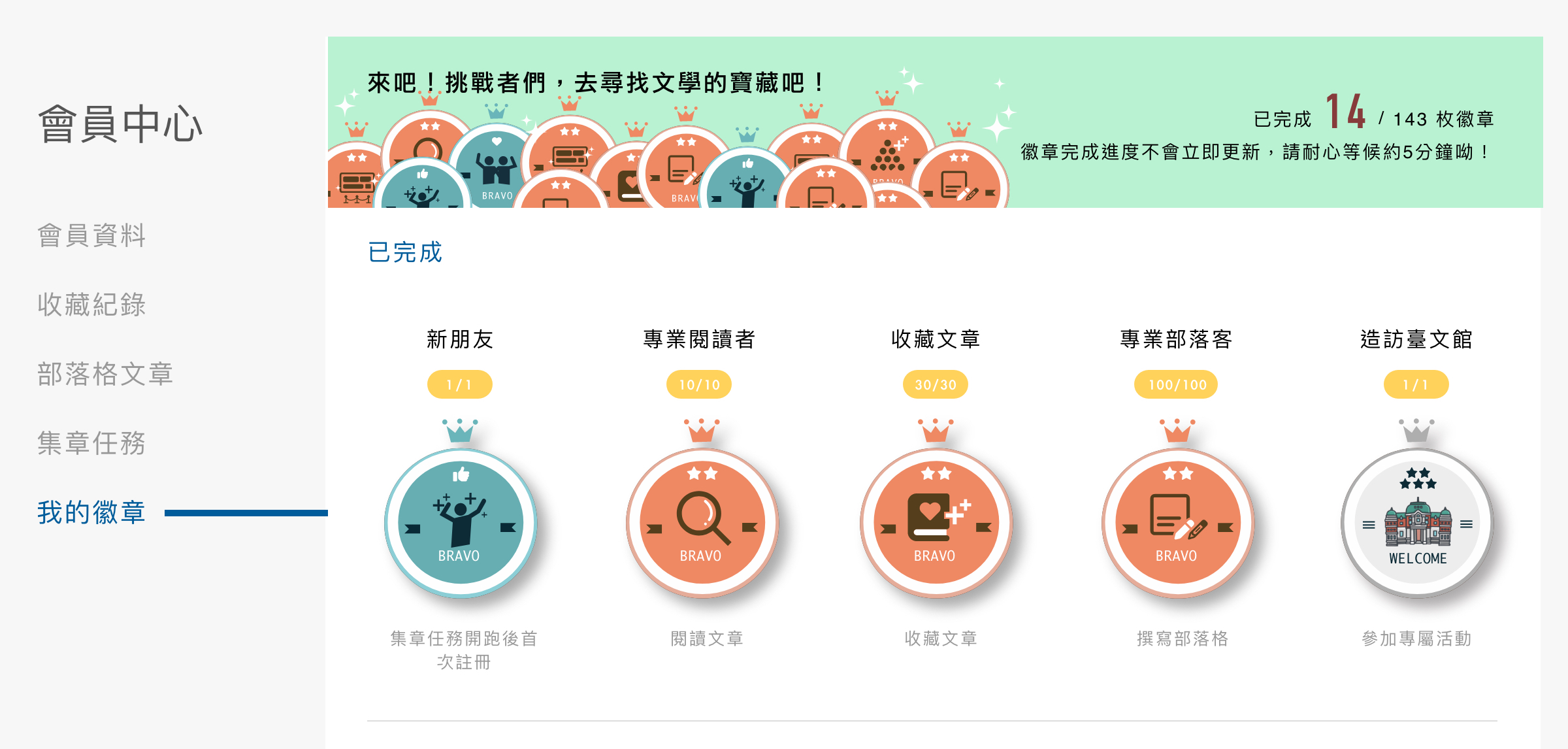Beyond Paper and Screens:
The Power of Sports Literature and Media



Before the advent of online streaming and widespread media broadcasting, one could either watch a sports game live in person or read analyses and reports written after a match. Commentary, in addition to drawing on a writer's expertise to recreate a match scene, must also dissect tactics and explain certain slip-ups or displays of exceptional skill. Sports literature depicts various scenarios in sports and at times peers deeper into the minds and mental states of its participants. Literature does not simply record the ever-fluid situation on the playing field, but further reveals the limitless possibilities that exist there.
4-1 When You Can’t Watch the Game
Spectators sometimes cannot attend events in person and must rely on the media to relive the action. During the Japanese colonial period, baseball was immensely popular, and Taiwanese cheered for the efforts of middle school players. Fans would gather around radios to catch broadcasts, and those who missed them looked forward to newspaper reports the next day. Even in the present media-saturated age, audiences still value coverage by reporters. Sports journalists strive to capture every moment on the field, occasionally adopting an athlete’s perspective to analyze decisions or stepping back to survey the
overall situation. A good sports journalist can use words to convey the full excitement and flow of the game.
4-2 Bottom of the Ninth, Two Strikes,
Three Balls! Highlighting the Invisible
While sports journalists strive to recreate the action on the field, commentators reveal the subtle strategies often imperceptible to ordinary viewers. They combine observation with their personal experience to analyze strategies from multiple angles, explaining the brilliance behind each decision to spectators. Besides grasping the entire situation on the field, thanks to modern technology, they are also able to analyze in detail the characteristics of each players, gaining further insight into their strengths and weaknesses. In the fast-moving arena, commentators thus provide audiences with sharper, deeper perspectives.

Taiwan New People Newspaper, No. 980, Supplement Page 3
This page comes from the November 11, 1933 issue of Taiwan New People Newspaper, No. 980.
During the Japanese colonial period, newspapers such as Taiwan New People Newspaper and Taiwan Daily News
featured a great deal of sports news. This page includes multiple articles on local sports events,
such as a city walk at National Taichung University of Education and sports meets at Puli Public School and Minxiong Public School.
The only two photos on this page are those of the women’s volleyball event and the 800-meter women’s street race at the Meiji Shrine Games.
(Collection of the National Museum of Taiwan Literature / Donated by Riro CHUTO / Replica, accession no. NMTL20060190133)

Wu Man-sha's Report: "Watching the Game at New Park"
Writer Wu Man-sha worked as a journalist after the war. This page reports on the second day
of the Daoming and Yuxiu Cups' men’s and women’s basketball and volleyball competitions on August 17, 1947.
The report provides minimal details on the game itself, focusing instead on the reactions of spectators, players, referees, journalists,
and vendors under the scorching sun, as well as detailed depictions of incidental events during the matches.
(Collection of the National Museum of Taiwan Literature / Donated by Riro Chuto / Replica, accession no. NMTL20060900427)
4-3 Seeing Deeper, With Passion
Although journalists and commentators enhance the understanding of spectators, the presence of those spectators in one form or another remains essential for the sustainability of commercialized sports. Thanks to advances in media, major international sports events can be watched in Taiwan through various channels, and many writers are also seasoned fans of the NBA, MLB, FIFA, tennis, or the Olympics. Even without playing themselves, fans develop expertise through years of experience and observation. Whether they engage with a sport emotionally or logically, passionately cheering or critically analyzing, their writings all stem from deep investment in sports and the use of language to capture its poetic aspects.

Together We Sing for the Olympics Vinyl Record
Baseball and Me Vinyl Record
On the eve of the 1988 Seoul Olympics, Rock Records released the compilation album Together We Sing for the Olympics,
featuring ten songs by artists including Li Tai-hsiang, Jonathan Lee, Emil Wakin Chau, Kay Huang, and Chao Chuan.
Baseball and Me was released by PolyGram in 1990 and includes tracks such as "The First Year of Professional Baseball."
(Courtesy of RPM Records Studio)


Manuscript of Li Chiao's "Heated Competition: Media and Sports"
Li Chiao criticizes the reporting of certain domestic media during the 1990 Beijing Asian Games,
saying that their "love for Mainland China and respect for the CCP," had reached an extreme level.
The reason, he argues, was to exploit cross-strait political issues to increase their sales revenue,
disregarding professional ethics as sports journalists and neglecting their responsibility to contribute to societal progress.
The author believes the media should pay more attention to domestic affairs,
and he strongly opposes Taiwan pursuing the right to host the Asian Games.
(Collection of the National Museum of Taiwan Literature / Donated by Li Neng-chi (Li Chiao) / Accession no. NMTL20150210093)


Manuscript of Wu Yung-fu's "Heaven Rewards the Diligent"
Wu Yung-fu depicts former national-level basketball player Hsu Hung-ping coaching the Lichih Senior High School basketball team in Kaohsiung,
traveling north to compete in the 73rd Annual Liberty Cup National Basketball Championship.
The phrase "heroes from humble beginnings" highlights the shared destiny of the coach and players: Hsu had not achieved personal fame,
but his passion for nurturing talent helped this basketball team developed strong skills and a strong work ethic,
despite their limited resources. Their perseverance not only moved society at large to provide support
but also helped Lichih Senior High School win the competition.
(Collection of the National Museum of Taiwan Literature / Donated by Shen Ming-chin / Accession no. NMTL20090330106)










